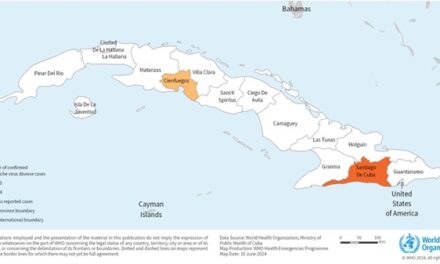In recent times, India has witnessed a surge in cases of cardiac arrest, bringing attention to a pressing issue: the ability to diagnose and prevent such health crises. Corporate India and the medical fraternity are increasingly perplexed by the growing number of non-communicable diseases (NCDs) and cardiovascular diseases (CVDs), particularly among the young population. The question is, why is India’s youth facing such alarming health issues?
Swiggy CEO Rohit Kapoor recently criticized the hustle culture, advocating for a healthier approach to life. His message resonated with many youngsters on social media, but in practice, Gen-Z and millennials are more likely to indulge in unhealthy behaviors rather than adopt preventive measures. This paradox highlights a larger issue in India’s battle with rising cardiac arrests and lifestyle diseases.
A New and Rising Medical Epidemic
Non-communicable diseases are on the rise, and their impact is undeniable. According to the World Health Organization (WHO), NCDs such as heart disease, stroke, cancer, diabetes, and chronic lung disease are responsible for 74% of deaths globally. These diseases have become the defining health challenge of the 21st century.
Among these, cardiovascular diseases (CVDs) have seen a staggering rise in India, with cases growing from 25.7 million in 1990 to 64 million in 2023. This alarming trend is particularly concerning given that India also accounts for 15% of the global diabetes cases, according to the World Heart Federation.
What’s even more troubling is that 40-50% of heart-related ailments now occur in individuals under the age of 55. One would expect that such grim statistics would encourage young people to adopt healthier lifestyles. Yet, the fast-paced, digitally-driven lives of today’s youth, combined with blurred boundaries between personal and professional life, seem to be exacerbating the problem.
Rising Cortisols and Burnout Syndrome
The constant pressure to excel, meet personal and professional goals, and conform to societal expectations has created an unhealthy environment for India’s young workforce. Chronic stress and anxiety, fueled by these pressures, lead to increased production of cortisol, the body’s primary stress hormone. Elevated cortisol levels are linked to a range of health problems, including cardiovascular diseases and other NCDs.
WHO data from 2018 already warned of the dangers posed by rising cortisol levels, which can manifest in not only cardiovascular issues but also endocrine and neurological symptoms. Some studies even suggest that high cortisol levels may contribute to the loss of DNA, further exacerbating health risks.
Focusing on Overall Well-Being
There is a dangerous misconception among young people that youth provides immunity against serious health conditions like diabetes and heart disease. However, non-communicable diseases often develop silently over time, with poor lifestyle choices made in one’s 20s and 30s laying the foundation for future health crises.
Awareness around stress management and sugar consumption has grown, but even those who understand the risks associated with junk food often fail to make the right dietary decisions. Sugar, often hidden in “healthy” products like smoothies, energy bars, and flavored yogurt, continues to be a significant contributor to the NCD epidemic.
The normalization of chronic stress is perhaps the most insidious problem. Over time, elevated cortisol levels, high blood pressure, and inflammation — all of which are exacerbated by stress — lead to the development of heart disease. Mental health remains a low priority for many young people, despite being equally important as physical health.
Changing the Perception of Health
Blaming societal pressures or corporate setups for the rise in cardiac arrests may be easy, but it does not address the root of the problem. What’s needed is a more holistic approach to health, incorporating both physiological and psychological well-being.
Young workers must shift their perception of health from a reactive to a preventive mindset. The belief that youth provides a shield against serious health conditions is not only misguided but dangerous. Silent killers like cancer, cardiovascular disease, and diabetes do not discriminate based on age — they thrive on neglect.
As India grapples with rising cardiac arrests and lifestyle diseases, the message is clear: young people must take control of their health, prioritize well-being, and adopt healthier practices before it’s too late. The hustle culture may drive professional success, but at the cost of personal health, it’s a price too high to pay.












